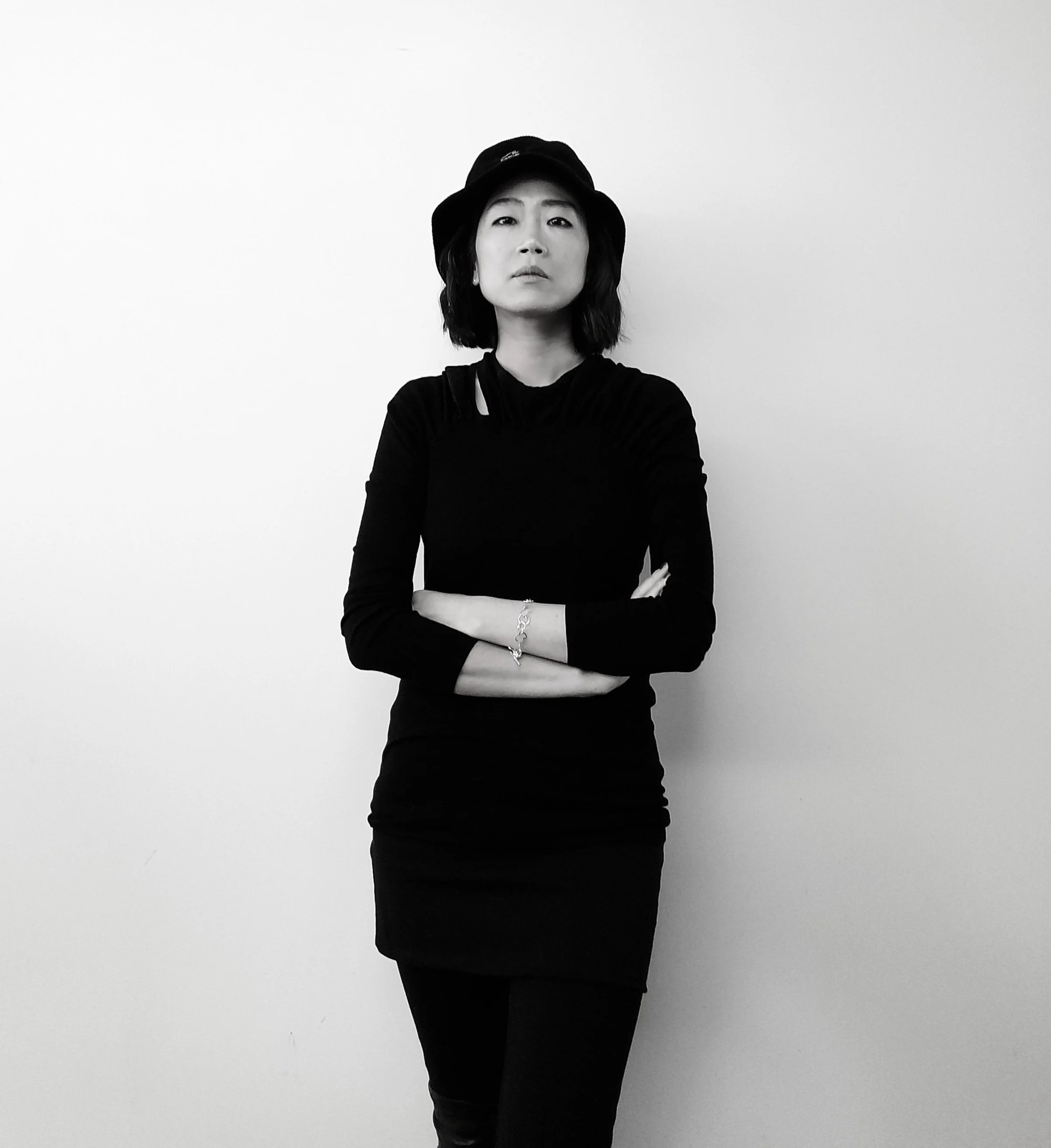10 Questions with Mariana Arrieta Ibarra
Al-Tiba9 Art Magazine ISSUE12 | Featured Artist
Mariana Arrieta Ibarra is 29 years old and Mexican. Mariana grew up surrounded by photography: her grandfather shot his youth in the Basque Country and his migration to Mexico on film; her dad continued his love for it by documenting his life as a basque born in Mexico, both on film and digitally.
Growing up, seeing her dad's passion for cameras and her whole life being documented and surrounded by nostalgia has done her search for it everywhere in her own work, having a chance at maybe portraying it.
“What are we, if not stories walking around waiting to be told? My aim is to find those special moments and stories of the everyday. I use black and white photography to change the focus from the colors to, more importantly, the faces and the stories they tell. My work looks for introspection, to listen more closely to people, to find out who they are and what moves them.”
Central de Abastos | Project Description
In the center of México in Querétaro, a city which has a population of 2,368,467 inhabitants, there is a market called “Mercado de Abastos”. Every day the shops begin their work in the early morning hours until midday, seven days a week. This market is responsible for all the products that the rest of the markets in the city sell, making it the most important. In it, you can find spices, fruits, vegetables, meat, clothes, etc. Every corner is full of people either working, loading trucks, or buying produce, without a single minute of silence between its busy streets.
Central de Abastos, Photography, 2021 © Mariana Arrieta Ibarra
INTERVIEW
How would you describe Mariana Arrieta Ibarra to our readers in three words?
Charismatic, sensitive, and easygoing.
As you mention in your biography, you grew up surrounded by photography. Your dad and grandad documented their lives through photographs, which definitely influenced you and your practice. How much of their lesson can we find in your photos today?
So much, without me knowing it, I had the privilege of being constantly visually inspired. My dad and I would always bond when talking about light, photography, composition, and creativity. I have found so many similarities between my work and theirs, and they also showed me the magic of film photography, which made me more patient and a better observer.
Central de Abastos, Photography, 2021 © Mariana Arrieta Ibarra
Central de Abastos, Photography, 2021 © Mariana Arrieta Ibarra
What other sources of inspiration, training, or lessons shaped you into the photographer you are today?
I recently just returned from a documentary photography workshop in Cuba, made possible by Witness Storytellers. I can honestly say it has changed the way I look at and shoot photographs. My work is currently incredibly inspired by my Cuban and International peers, who are not only photographers but multidisciplinary artists. Having the privilege of shooting alongside all these amazing artists has made me dig deeper into what I'm doing and why.
You mostly work with portraits. What would you like to investigate with these portraits? What themes and subjects would you like to focus on in your practice?
I think I'm trying to tell a story, I'm trying to discover and make sense of the world we live in by meeting as many incredible people as I can, and photography has gifted me just that.
Central de Abastos, Photography, 2021 © Mariana Arrieta Ibarra
Central de Abastos, Photography, 2021 © Mariana Arrieta Ibarra
Let's talk about your series Central de Abastos. What is the series about? And how did you get interested in this subject and the people portrayed?
I had a workshop with photographer Ashley Gilbertson, also made possible by Witness Storytellers in my city Querétaro, where we went there. I fell in love with the people and their stories, and continued going there with the hope of being able to show what they do.
About the subject portrayed, did you know them beforehand? Or how did you approach them?
I didn't know them beforehand, but I was taught that being respectful, a good listener, and kind are always important, so I approached people, talked to them, and listened
When did you shoot the photos? Did you find any difficulty in convincing the people to be portrayed? Or were they willing to participate?
I try to first talk to them and then take photographs. Some people will not want their photos taken, and I respect that, but most are willing and excited about it.
Central de Abastos, Photography, 2021 © Mariana Arrieta Ibarra
Central de Abastos, Photography, 2021 © Mariana Arrieta Ibarra
Why did you choose black and white photography over color?
I find it poetic and timeless, and I just sometimes prefer it.
We usually say that a picture is worth a thousand words. In a society overloaded with images like the one we live in, do you think this is still true nowadays?
I recently learned that one photograph is not enough. So empowering photography is important either through accompanying it with text or maybe creating an essay, for example. I think everyone has a story, and most of them have not been told yet. There is an abundance of them everywhere we look, so in that sense, I think doing just that makes them more important and meaningful.
And lastly, let's talk about your future projects; what are you working on now? Do you have any upcoming shows or publications?
I'm currently working on a few projects simultaneously—one about Cuba, another on migrant women in Barcelona, and some more, which I'm still developing. I am also very excited that I will be featured in JPG Book n.9, Women United Art Magazine issue 2, "In the Spotlight," and I am also part of the non-profit organization Women Photograph.


























